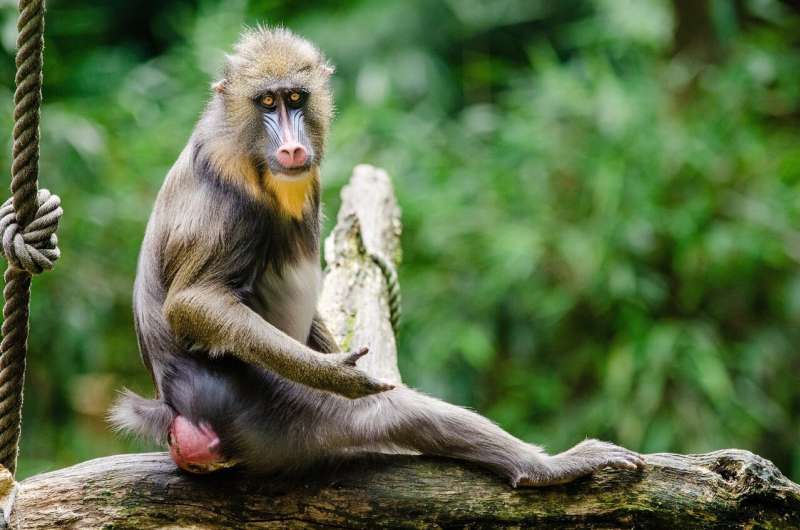Credit: CC0 Public Domain
Humans are not the only ones to teach their children good hygiene practices—mandrills do it too.
In these primates, where many individuals are infected with contagious gastrointestinal parasites, some females systematically avoid grooming the peri-anal region of their groupmates. This "hygienic" strategy is then transmitted to their daughters, as shown by the study of Marie Charpentier—CNRS researcher at the l'Institut des Sciences de l'Evolution de Montpellier (CNRS/Université de Montpellier /IRD/EPHE) and the Max Planck Institute of Animal Behavior—and Clémence Poirotte, researcher at the German Primate Center, published on February 8, 2023 in the Proceedings of the Royal Society of London B.
To make this link, the two scientists studied a large social group of mandrills (Mandrillus sphinx) living in a nature reserve in Southern Gabon. Over six years, they collected and analyzed behavioral and parasite data from 297 mandrills, including 102 females observed grooming their groupmates. In these social animals, exposure to parasites is highly important and has favored the evolution of often elaborate behavioral adaptations.
Avoiding the infected body area, a hygienic trait, paid off, as those that did so were less parasitized than others. In addition, the researchers found that this hygienic practice was socially inherited from mother to their daughters. This study suggests that the social transmission of hygiene in a group of primates allows resistance to pathogens, with potential consequences on the dynamics of infectious diseases.
More information: Clémence Poirotte et al, Mother-to-daughter transmission of hygienic anti-parasite behaviour in mandrills, Proceedings of the Royal Society B: Biological Sciences (2023). DOI: 10.1098/rspb.2022.2349
Journal information: Proceedings of the Royal Society B
Provided by CNRS
























